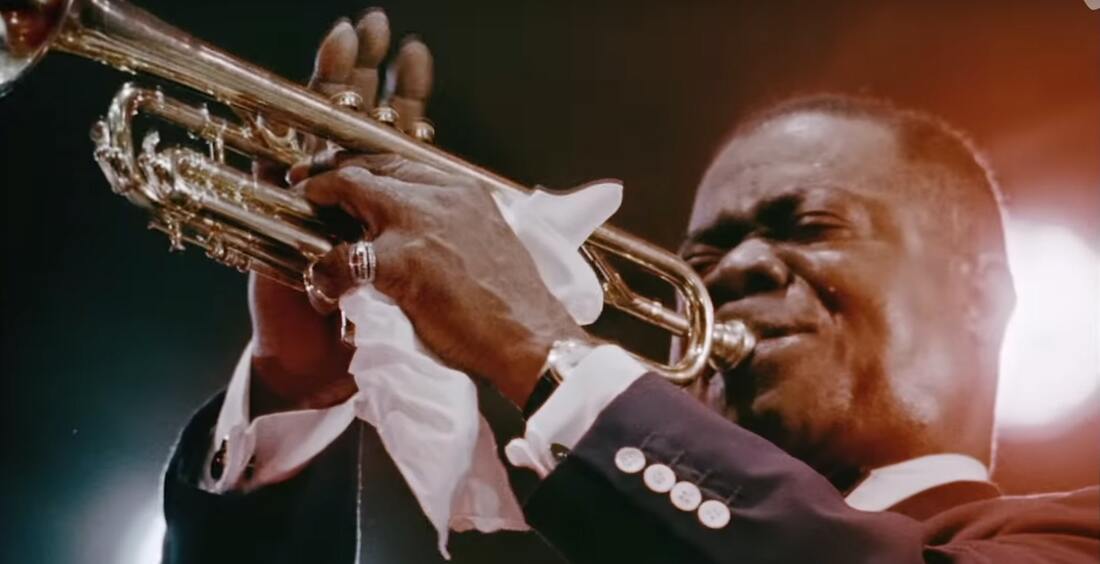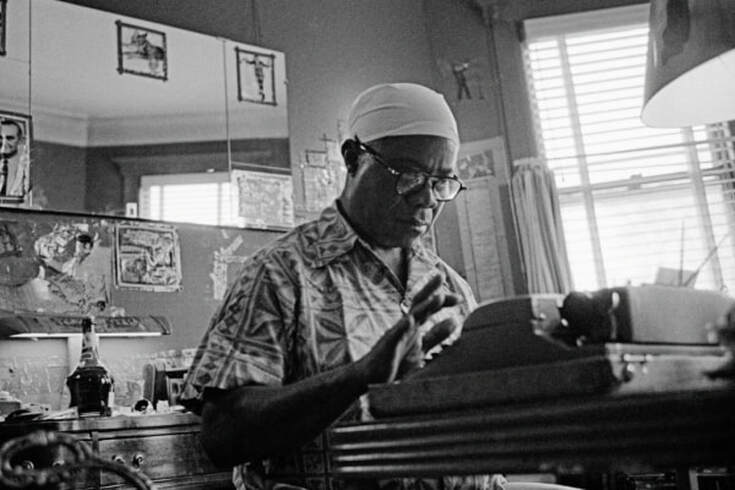|
Review by Tatiana Miranda Two years ago, Apple TV+ released their acclaimed documentary on the Beastie Boys, and now the streaming service returns with another stellar music documentary, Louis Armstrong's Black & Blues. This documentary by Sacha Jenkins helps contextualize Armstrong's music and fame, which is especially crucial since very few of the documentary's viewers are unlikely to have lived during his prime. From recorded radio and television interviews, newspaper clippings, and Armstrong's own writings, Jenkins manages to paint a detailed picture of Armstrong with only artifacts since he passed over fifty years ago. Due to Jenkins' creativity in the layout and execution of the documentary, Black & Blues is representative of Louis Armstrong's vibrant personality that casual fans or listeners may not be familiar with. Through his writing, his literal voice from private recordings and interviews, and his music, Louis Armstrong's personal history of growing up in the early 20th century and the overall racial climate of the time is exhibited in Black & Blues. Growing up poor in New Orleans, he recounts the food his mom made out of scraps and his job selling coal in the red-light district. While some of these tidbits might come across as unnecessary "fun facts" about the famous singer and trumpet player, they help contextualize his music and journey as a musician. As he states in one recording, Armstrong was first introduced to the power of jazz by the musicians playing in cabarets and around the red-light district. Even as he gained worldwide acclaim, playing sold-out shows and becoming a household name, Armstrong still faced the racial prejudice that was extremely prevalent at the time. One big subject of the documentary is Armstrong's stance on segregation and the civil rights movement. While he might have never outwardly criticized it, his actions, such as requiring usually segregated hotels and other venues to allow him to stay at them if he was to perform, made it known that he did experience prejudice and wasn't going to let it slide. With his fame and influence, he made strides in terms of representation, as he starred in films such as The Glenn Miller Story and Hello, Dolly! Although Armstrong made a huge impact on both the music industry and African-American history, there are still plenty of criticisms regarding his stance on social justice issues and general happy-go-lucky attitude. Black & Blues doesn't hide these critiques but instead exhibits them and adds background information. For example, as Armstrong's wife states in an interview, one of the main reasons Armstrong never openly discussed the civil rights movement is because he knew that his words had weight but that he was just a musician, and that's what he did best. In an age of "cancel culture" and heavy criticisms of celebrities, Armstrong is a perfect example of a public figure whose stance on issues wasn't necessarily black-or-white but complicated and full of nuance that Jenkins masterfully displays.
An insight into Louis Armstrong's life and musical accomplishments, Louis Armstrong's Black & Blues is a feat in the music documentary genre. With Jenkins' jazz-like documentary format that doesn't stick to one beat, mixing timelines and concepts with one another, this documentary is sure to wow both long-time Armstrong lovers and those just now getting familiar with his work. Louis Armstrong's Black & Blues is released on October 28 on Apple TV+. Rating: 4/5
0 Comments
Leave a Reply. |
Archives
July 2024
Authors
All
|
|
|
disappointment media
Dedicated to unique and diverse perspectives on cinema! |


